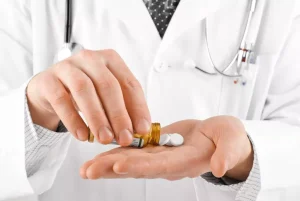
Discover how doing less can break your worst habits with the EAT cycle. U.S. alcohol guidelines are changing as health concerns increase. Alcohol-free cocktails and beer, along with cannabis-infused beverages, are gaining users. Here’s where we stand, including thoughts rebuilding your life after addiction on how to save more lives. Shift perspective to see relapse and other “failures” as opportunities to learn. • Hope and optimism—nurturing belief in oneself, belief in one’s ability to persevere even through setbacks, and developing a future orientation.
- Integrity, self-confidence, and self-esteem grow, laying the foundation for a more positive identity.
- Isn’t it funny that when we finish our studies, we all enter the economy with a clean credit history as if we were experts at managing our income?
- If you lost your home because of foreclosure, you can still get another mortgage to buy a home.
- By contrast, most adolescents relapsed in social settings when they were trying to enhance a positive emotional state.
How to Build Self-Esteem During Recovery From an Addiction

It’s important that the chosen therapist is a good therapeutic match for the client. One of the last things I could recommend in this area is to be willing to seek out therapy to assist in helping you to avoid using when the urges and cravings are at their strongest. There will be times when you feel you need an outside source who will be an additional resource to continue to live a life in recovery.
Treatment Cost
Don’t fall into the trap of blaming drugs, alcohol, or external circumstances – this can often lead to further caution and concern from the people surrounding you. Own up to your actions, admit you have a problem, show humility, and outline the steps you’re taking to improve yourself and not let them happen again. You may need to work on the relationship for a few months, a year, two years, or more. In some cases, the relationship might not be the same as before, but it can slowly evolve into something new. Rebuilding trust cannot come with expectations, and it’s important to remember that sometimes people may not forgive you at all.
Five Ways to Save Your Home If It’s Put up for a Sheriff’s Auction
- Addiction can affect your job, friendships, family, relationships, and much more, and unfortunately, these problems aren’t always quick to resolve after entering recovery.
- We’ve outlined some key steps that can set you in the right direction and help you to heal damaged relationships.
- That is because the brain is plastic and changes in response to experience—the capacity that underlies all learning.
- Exercise is an often-overlooked aspect of recovery, but moving the body will help ease anxiety, improve sleep and overall outlook.
- These connections provide emotional support, practical help, and encouragement as you rebuild your life.
Having mood swings and a high temper is common in addicts, both before and during the recovery process. Living a healthy life is improve your mood and helps you live a stress-free life. Addiction takes a toll on your physical health, mental health, and relationships. Remember to stay hydrated by drinking lots of water and try not to have too much coffee.

Many types of recovery support are available, and many people make use of more than one type at any time and may shift from one type of support to another as recovery proceeds and needs evolve. Because recovery involves growth, families need to learn and practice new patterns of interaction. No matter which pathway of recovery a person chooses, a common process of change underlies them all. The well-researched science of behavior change establishes that addictive behavior change, like any behavior change, is a process that starts long before there’s any visible shift in activity.
• Developing a detailed relapse prevention plan and keeping it in a convenient place for quick access when cravings hit, which helps guard against relapse in the future. A good relapse prevention plan specifies a person’s triggers for drug use, lists several coping skills to deploy, and lists people to call on for immediate support, along with their contact information. What is needed is any type of care or program that facilitates not merely a drug-free life but the pursuit of new goals and new relationships.
These activities contribute to personal growth, development, and self-esteem, helping individuals rebuild their self-image. Recovery from addiction is not a linear process, and increasingly, relapse is seen as an opportunity for learning. Such triggers are especially potent in the first 90 days of recovery, when most relapse occurs, before the brain has had time to relearn to respond to other rewards and rewire itself to do so. Learning what one’s triggers are and acquiring an array of techniques for dealing with them should be essential components of any recovery program. Recovery involves rebuilding a life— returning to wellness and becoming a functioning member of society. Every person needs a comprehensive recovery plan that addresses educational needs, job skills, social relationships, and mental and physical health.

